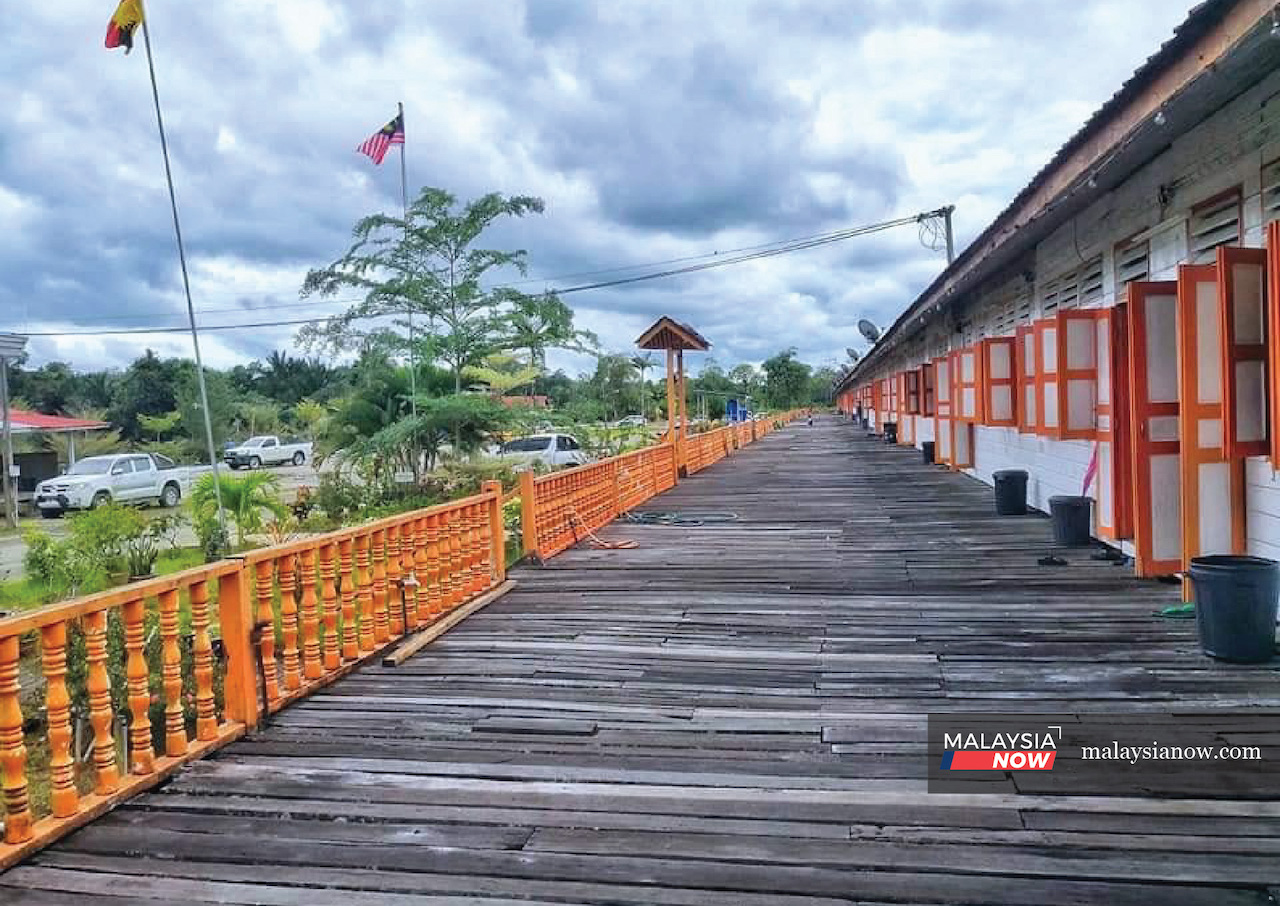Weaving the warrior spirit into a Gawai under Covid-19
No communal celebrations are allowed this year, but Sarawakians will try to keep the spirit alive nonetheless.
Just In
In a longhouse in Sebauh, Sarawak, a group of women from the Iban community would sit in patches of soft sunlight, chatting over biscuits and cups of sweet tea in an airy wooden pavilion space known as the ruai.
Each year, the ladies of Rumah Raymond Plen would be busy weaving material known as ngepan cloth used for traditional outfits normally worn by young women during the Gawai Dayak festival.
This is an important part of the highlight of the celebration: the Kumang beauty contest, where every eligible young lady dresses up in the ngepan.
Sudan Anak Ruma, who has woven ngepan cloth for 40 years, said this was the most eagerly awaited event of the longhouse.
“On Gawai eve, all the single young ladies will wear the ngepan and everyone is excited to watch, and to cheer for those who participate in the beauty contest,” the 61-year-old told MalaysiaNow.

The origins of ngepan cloth are natural resources such as rattan, tree bark, shells, animal skins and even anteater scales.
“Even the thread for the costume was originally made from raw cotton,” Sudan said.
While the difficulty of finding such materials these days has brought changes to the outfit, it still plays a huge role in making the celebration meaningful.
Plus, it’s a chance for the young women to let down their hair and have a bit of fun.
“The ladies love to dress up and wear ornaments,” Sudan added.
But celebrations this year will be very different for Sudan and her family as they will not be able to return to their longhouse.

Covid-19 health SOPs mean no travelling for Sudan, who is staying with her daughter Diana Sujata Anak Bundi in Bintulu city, about 100km away from the longhouse.
“No ngabang, no family gatherings,” Sudan said, using the Iban word for visiting. “This year, we will be having a simple and moderate Gawai.”
As celebrations are not allowed, they will also tone down the preparations that normally precede the festival, buying only essential items.
For weeks, Sarawak was the only state to remain under conditional movement control order (CMCO). But the continued increase in cases saw the stricter MCO reinstated on May 29.
Last year, when the pandemic was first detected, most of the cases were reported in urban areas. This year, though, the virus has been spreading throughout rural areas as well.
Poor compliance with SOPs has seen 714 longhouses placed under enhanced MCO this year, with 98 still under lockdown.
At their longhouse in Sebauh, the village security and development committee (JKKK) of Rumah Raymond Plen has stepped up measures to prevent the spread of Covid-19 throughout Gawai. Among others, celebrations can only be held among members of the same household or longhouse “room”.

JKKK chief Raymend Anak Plen told MalaysiaNow the committee had cordoned off the walkway of the ruai to prevent villagers from crossing next door.
He has also instructed those living in the 53-door longhouse to stay at home and not to go out unless they have to.
“We are very serious about this because we don’t want this virus to spread and affect our people in the longhouse,” he said, adding that there are more than 100 people living in the longhouse.
There will also be no gathering in common areas and no organising of events such as cock-fighting.
Fines will be imposed on offenders according to an Iban custom known as adat geliga.
“When Ibans organise functions such as Gawai, or weddings or funerals, a fine is imposed on those who breach the rules.
“I would say it is a ‘movement control order’ Iban longhouse-style,” he added.

Back in the city, Sudan and Diana will do their best to celebrate between themselves by decorating their home, wearing traditional clothing, and cooking traditional food – ayam pansuh, or chicken cooked in bamboo, is an especial favourite.
“Even though we are not able to return to our longhouse for Gawai, we are still excited and will continue to produce the ngepan cloth and marik empang for our customers,” Sudan said, referring to a separate decorative piece fitted with colourful beads and attached to the shoulder of the outfit.
“I hope those who wear our ngepan cloth will have the warrior spirit to fight against the virus,” she said. “We hope the vaccination can be rolled out as soon as possible.”
Subscribe to our newsletter
To be updated with all the latest news and analyses daily.



